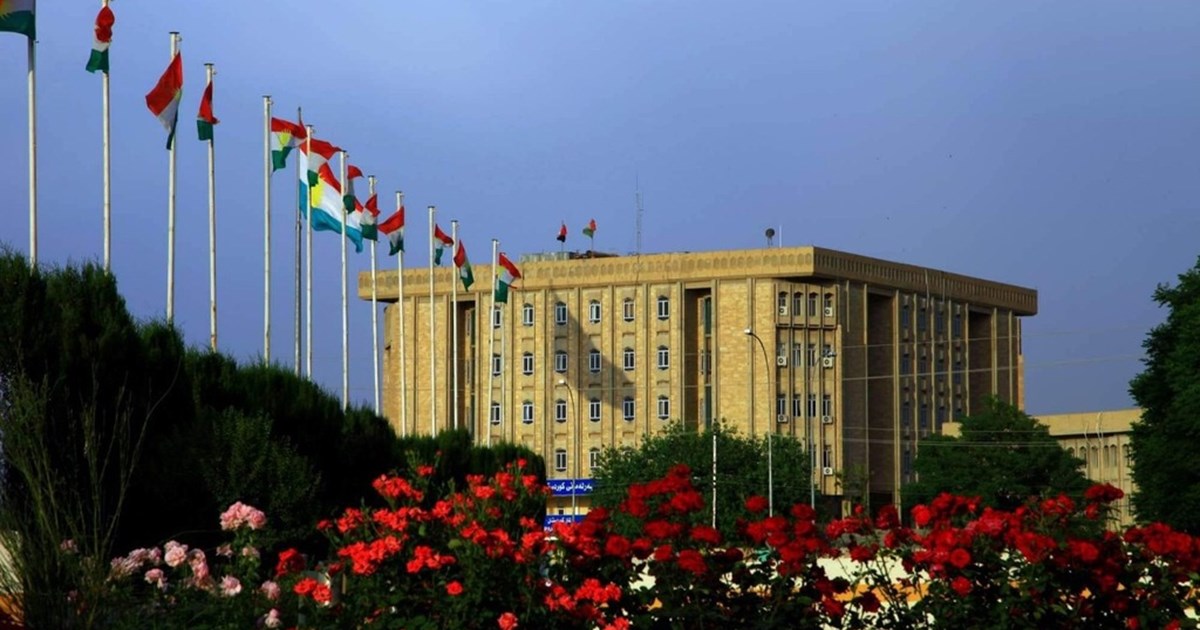The Kurdistan Parliament's role and powers

Parliament's founding principles and responsibilities
The Kurdistan Parliament is the Region's democratically elected legislature. The parliament consists of one elected chamber. Its main functions are:
To examine proposals for new laws, to draft and pass legislation; to scrutinize government policy and administration; and to debate the major issues of the day.
The founding principles of the Kurdistan Parliament are described in Law No. 1 of 1992 (external link to Legislation Database), in the final passage on the purpose of the law:
Democracy, respect for human rights and freedoms, self-rule, the rule of law and justice,
the right to representation, self-determination, and the legitimate aspirations of the people of Kurdistan.
MPs are elected by popular vote to parliament’s 111 seats. The Kurdistan Parliament is led by the Speaker, who is assisted in their duties by the Deputy Speaker and Secretary.
Parliament’s powers
As provided in the federal constitution of Iraq*, Parliament has considerable power to debate and legislate on policy in a wide range of areas: the Region's finances and fiscal policies, health services, education and training, policing and security, the environment, natural resources, agriculture, water management, housing, trade, industry and investment, social services and social affairs, transport and roads, culture and tourism, sport and leisure, and ancient monuments and historic buildings.
The Kurdistan Parliament shares legislative power with the federal authorities in the following areas, but priority is given to the Kurdistan Parliament’s laws: customs, electric energy and its distribution, development and general planning, environmental policy, health, education, and internal water resources. In addition, under Article 121 of the Iraqi federal constitution the Kurdistan Parliament has the right to amend the application of Iraq-wide legislation that falls outside of the federal authorities’ exclusive powers.
According to Article 112 of the constitution, the federal government together with the producing governorates and regional governments, manage the oil and gas from present fields, as long as the federal government distributes revenues in a fair manner.
Article 112 also states that the federal government, together with the producing regional and governorate governments, will formulate strategic policies to develop the oil and gas, to achieve the highest benefit to the Iraqi people, using the most advanced techniques of market principles and encouraging investment.
Article 115 gives priority to the laws of the Kurdistan Region over federal laws and is invoked when no agreement is reached on oil and gas management and revenue distribution.
*These powers are granted by the federal constitution of Iraq in articles 114, 115, 117, 120, 121, 126 and 141.
Article 56 of the Kurdistan Election Law, Law No. 1 of 1992 (external link), sets out Parliament's duties and authority:
1. Legislation.
2. Approve agreements, resolve the defining issues critical for the people of Kurdistan in Iraq, and determine the legal relationship with the central government.
3. Appoint the head of the executive branch, who has the authority to nominate both MPs and non-MPs to positions in the executive branch.
4. Give or withdraw confidence from the Council of Ministers.
5. Approve the general budget and development plans.
6. Monitor the executive branch.
7. Establish committees to scrutinize or investigate any matter.
8. Establish Parliament's internal system, determine its composition and decide on the employment of its staff.
9. Establish standing and ad hoc parliamentary committees, in accordance with Parliament's internal rules.
10. Establish grounds for convicting and holding members accountable for breaking their parliamentary oath.
11. Decide on complaints about the correct election of members. Membership shall not be canceled except by a two-thirds majority of the members.